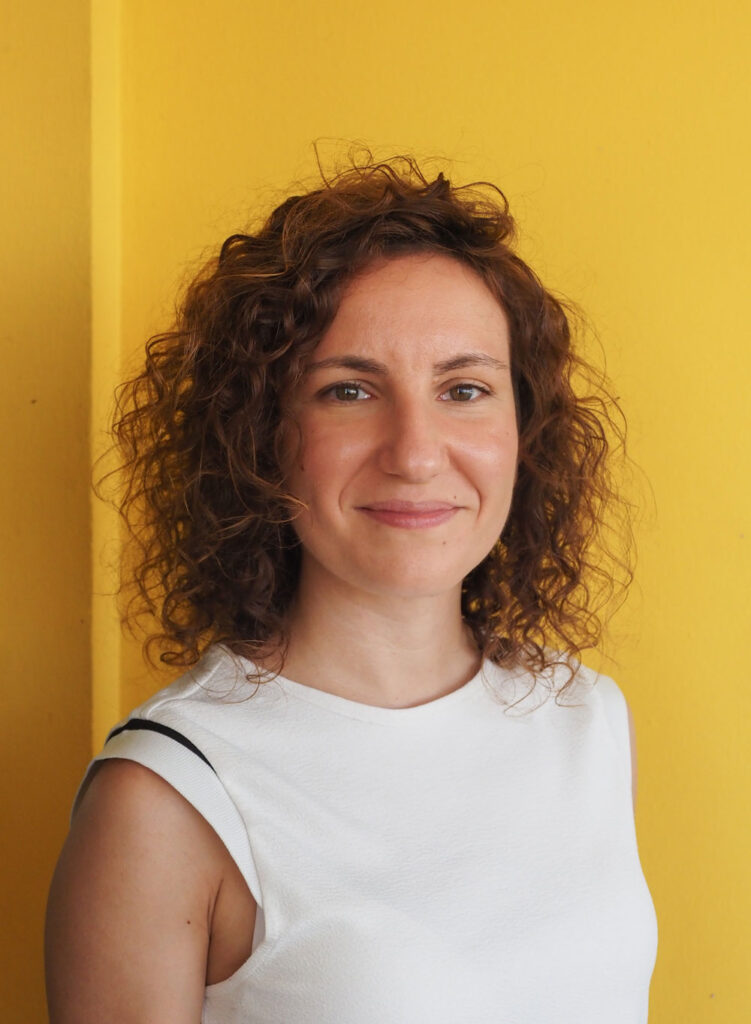“It is exciting to think that Granada will become a global scientific reference”
Posted on |

Celia Carvajal (Granada, 1989) is an Industrial Engineer from the Polytechnic University of Madrid, specialising in Electrical Engineering, with a Double Degree from the Royal Institute of Technology (KTH) in Stockholm (Sweden), and a Master’s Degree in Complex Problem Solving from the UNIR. His current position at IFMIF-DONES is that of leader of the control systems section within the engineering department.
– Question (Q): Before joining IFMIF-DONES, you worked at the European Spaceport in French Guiana. Space exploration and fusion energy are major challenges. Is the comfort zone not part of your vocabulary?
– Answer (A): Professional and personal growth happens when you face challenges outside your comfort zone. In space and fusion energy, challenges are continuous, requiring innovation, perseverance and the collaboration of teams with expertise in different areas to solve problems. I have always been motivated by participating in pioneering projects where there is no set path and where every decision can make a significant difference. The IFMIF-DONES project is a vast and unprecedented challenge, requiring technical knowledge and the ability to adapt quickly and collaborate with multidisciplinary teams. This constant quest for learning and self-improvement defines much of my career.
– Q: The IFMIF-DONES team includes many engineers and scientists who previously worked abroad. What did you think when you heard that Granada would host one of the world’s largest accelerators?
– A: To be able to work on an international high-tech project from my home town and to contribute to a project with such important implications in the field of fusion energy is a source of great fortune and pride. It is exciting that Granada will become a global scientific reference, attracting international talent and creating a lasting impact.
– Q: You have validated highly complex, innovative procedures throughout your career. What is the most decisive factor in ensuring the quality of critical operations performed for the first time?
– A: We can define ‘quality of critical operations’ as the ability to reliably, efficiently and safely execute actions where human or system failure could have serious consequences. Therefore, to guarantee the quality of these operations, we can implement two types of mechanisms. On the one hand, we can make the system (hardware/software) implement functions to prevent these possible failures. On the other hand, we can establish operational procedures to be executed by the system operators, which will contain control points in the actions with the highest risk of failure and whose consequences could be more serious.
The most decisive factor in this process is the rigour with which these prevention mechanisms are validated.
– Q: What is your vision for the Granada of the future, where the University is essential and which will host a unique scientific facility worldwide?
– A: I envision a Granada that will become a scientific and technological reference point, where innovation and research will be key drivers of local development. The University of Granada already plays a central role in training highly qualified professionals, and with projects like IFMIF-DONES, the academic, technological and business environment will grow exponentially. I am convinced that IFMIF-DONES will be the most relevant scientific facility in Spain and one of the most important within the European Fusion Programme, with a significant impact worldwide.
My vision for Granada’s future is a city where science, technology, and culture merge, attracting experts from all over the world and providing new generations with opportunities to develop without the need to look outside. We are on the way to consolidating a much more international and competitive Granada in the global scientific arena.
– Q: And sharing a desk with so many multidisciplinary professionals?
– A: Working with such a multidisciplinary team is a privilege. Each person brings unique skills and experiences, creating a workspace where ideas flourish. By tackling problems from different disciplines, we develop more creative and effective solutions. I love collaborating with experts from varied fields and learning from their approaches and knowledge. We are all highly motivated and focused on the same goal. It is also a pleasure to work with a team of exceptional people whose human qualities enrich the working environment.
– Q: You have been involved in activities to promote women and girls in science. What do you think of Women in DONES?
– A: It finds the strength to innovate and overcome any challenge in the diversity of ideas and talents. Throughout my career, I have seen how important it is to have references of men and women who are passionate about science and engineering and who have played a fundamental role in advancing research and technology. Initiatives such as Women in DONES make the valuable contribution of these people visible, becoming a source of inspiration for young people and contributing to scientific dissemination to make knowledge accessible and awaken vocations in new generations.